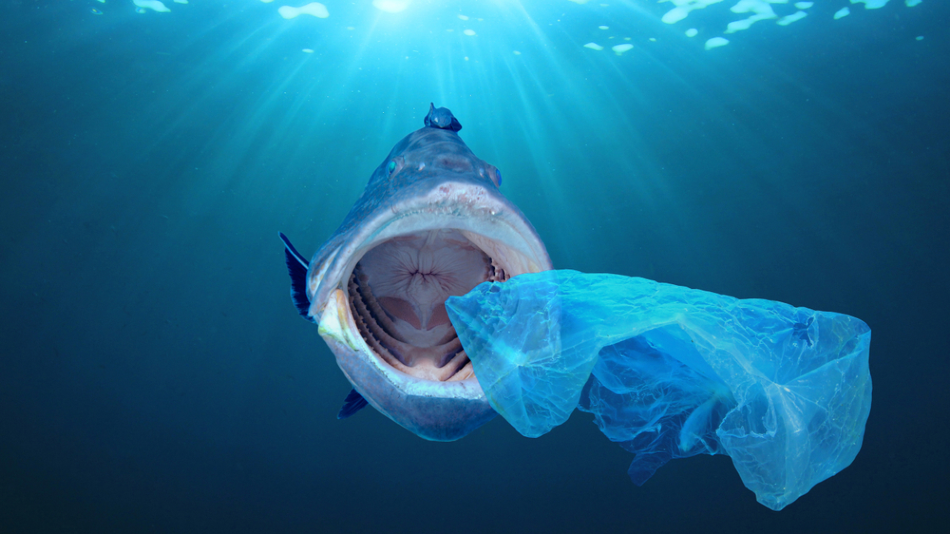How we are fighting plastic pollution, one step at a time.
FIGHTING BACK AGAINST PLASTIC POLLUTION
Why we at Joov Sports Products use aluminium packaging for our topical balms and oils...

At Joov we are very aware of the effects of pollution, in particularly plastic pollution. That’s why all of our products are packaged using only recyclable materials, and the majority of our products use aluminium packaging, steering clear of plastics where ever possible. Yes it is more expensive, but ultimately profits are overwhelmingly less important than trying to protect our planet.
First of all, we ask the question ‘What is plastic pollution, and how does it affect us?’
Plastic pollution is the accumulation of plastic objects and particles in the Earth's environment that adversely affects wildlife, wildlife habitat, and humans. Some plastics can take hundreds, maybe even thousands of years to degrade. Microplastics are consumed by all kinds of animals, entering the food chain, threatening both animal & human health.

Some shocking facts about plastic pollution
-
100 million marine animals die each year from plastic waste alone. 100,000 marine animals die from getting entangled in plastic yearly – this is just the creatures we find! 1 in 3 marine mammal species get found entangled in litter, 12-14,000 tons of plastic are ingested by North Pacific fish yearly
-
About 8.3 billion tonnes of plastic has been produced since the 1950s – the weight of roughly a billion elephants or 47 million blue whales.
-
Up to 12.7 million tonnes of plastic enters the oceans every year. That’s roughly the equivalent of a truckload of plastic into the oceans every minute adding up to around five trillion pieces of plastic in our oceans – enough to circle the Earth over 400 times.
-
Only about 9% of this plastic has been recycled, 12% has been burned and the remaining 79% has ended up in landfills or the environment.
-
Scientists have documented 700 marine species affected by ocean plastic.
-
Up to 9 of 10 seabirds, 1 in 3 sea turtles and more than half of whale and dolphin species have ingested plastic.
-
In the Canadian Arctic, 87% of birds have ingested plastics of some sort.
-
Crustaceans tested at the ocean’s deepest point, Mariana Trench, had ingested plastic.
-
Plastic buried deep in landfills can leach harmful chemicals that spread into groundwater. Around 4 percent of world oil production is used as a feed-stock to make plastics, and a similar amount is consumed as energy in the process
-
Once at sea, sunlight, wind, and wave action break down plastic waste into small particles, often less than one-fifth of an inch across. These so-called micro plastics are spread throughout the water column and have been found in every corner of the globe, from Mount Everest, the highest peak, to the Mariana Trench, the deepest trough. Micro plastics are breaking down further into smaller and smaller pieces. Plastic micro-fibres, meanwhile, have been found in municipal drinking water systems and drifting through the air.
Why Joov uses aluminium predominately packaging.
- Aluminium is 100% recyclable and retains its properties indefinitely.
- Aluminium recycling benefits present and future generations by conserving energy and other natural resources. It requires up to 95% less energy to recycle aluminium than to produce primary metal and thereby avoids corresponding emissions, including greenhouse gases.
- For most aluminium products, the metal is not actually consumed during the product's lifetime, but simply used, with the potential to be recycled without any loss of its inherent properties. Therefore, the life cycle of an aluminium product is not the traditional "cradle-to-grave" sequence, but rather a renewable "cradle-to-cradle".
-
Around 75% of the almost one billion tonnes of aluminium ever produced is still in productive use, some having been through countless loops of its lifecycle.

Baby Steps Add Up
We want help in the battle against plastic waste. Yes, we are only a small company, however baby steps add up!
We are in the process of launching our EcoTshirts – These will be organic T’s using sustainable materials. We will donate 20% of the profits to Charity.
Currently we’re in the very early stages and we are still looking for a reputable charity to work with. We have a few in mind but if you have any recommendations please comment below, or send us an email with your suggestion(s).
Thank you for reading this blog. We hope you knew it all already, and that you started reducing plastic use a while ago ;) But we’re equally happy if you’ve learned something new, and that this blog may have helped to sway you from using single use plastics, or even plastic in general.
Thank you for reading.
Joov Sports Products.
